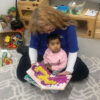
For most children, the summer holidays are a chance to spend time with friends and relax. But sometimes it can feel a bit lonely. Some might miss the routine they have when in school, while others might not get on with their family at home.
So how can you help your children cope with some of the more negative aspects of the long summer break? Here, Childline looks at some of the main issues that might be affecting our children and young people:
Loneliness
It’s normal for children to feel lonely or a bit down at times over the summer. Suddenly changing routine can take a lot of getting used to and they might not be able to see their friends everyday like they do in school.
Talking is so important when it comes to beating loneliness. Let them know they can talk to you at any time, or another adult or friend they trust. And Childline’s volunteer counsellors are available all day, every day. The most important thing is not to keep it all to themselves.
Rows at home
Summer holidays can be difficult if there are tensions at home and, because children are home more during the holidays, it’s possible that there might be more arguments than usual.
Every family has problems from time to time, even if they’re usually happy and don’t often argue. If you’re worried about your family arguing more than usual, urge them to talk to you about how they feel and try to find a way together to help everyone get along. They can also visit the www.childline.org.uk message boards and read advice from their peers on how they cope with family rows.
Going back to school
Going back to school after a long break can be scary. Lots of children and young people feel the same – especially those starting a new school. But there are some small things they can do to help them feel calm and in control.
• Plan their time – set an alarm so they have enough time to get ready. Check which lessons they have that day and make time for homework.
• Pack a bag the night before so there’s no last-minute rush.
• Their teachers are there to help – they should speak to them if they’re worried.
• Get help if things go wrong – whether that’s bullying, workload or exam stress. They should speak to you, their teacher or Childline.
Spending more time online
With the extended break, it’s only natural for children to start spending more time online. While the internet can be a great place to learn, play games and stay in touch with friends, it can also expose children to risks such as grooming or bullying.
Talking regularly with your child is the greatest tool to help keep them safe online. Making it part of daily conversation, like you would about their day at school, will help your child feel relaxed. It also means when they do have any worries, they’re more likely to come and speak to you.
You can find a wealth of online safety advice on the NSPCC website: www.nspcc.org.uk/keeping-children-safe.
Starting a new relationship
Relationships can be really exciting but they can be scary too. It’s normal for young people to have worries about it. It can be hard for children to know who to talk to and it’s embarrassing to talk to your parents about it.
Starting a serious conversation with a child is never easy. It can help to try to prompt them with a TV show or story book to introduce the topic. Or try asking what they’ve learned about it in school and see what their friends thought.
Have a few ‘bite-sized’ conversations over a period of time to give your child the time to process what you’ve discussed. And create the right situation – have it in a relaxed, neutral place where you won’t be interrupted.
Home alone/out alone
Learning to be independent is an important part of growing up. Between work and other commitments, every parent will have to leave their child home alone at some point.
Although there’s no legal age a child can be left home alone, we recommend not leaving a child younger than 12. A child who doesn’t feel comfortable should never be left.
As your child gets older, talk to them about how they feel about being left home alone. If they’re worried, work out what parts of being home alone worry them most. Do they feel safe in the neighbourhood? Are they afraid of the dark? Understanding why they don’t feel comfortable will give you an idea of how to help.
For further advice and support, why not explore the Childline website together at www.childline.org.uk
Try the games and exercises in the Calm Zone to help your child feel less anxious.
For parental advice, there’s the NSPCC Helpline on 0808 800 5000, available Monday to Friday 8am – 10pm or 9am – 6pm at the weekends. Or visit www.nspcc.org.uk/keeping-children-safe.











